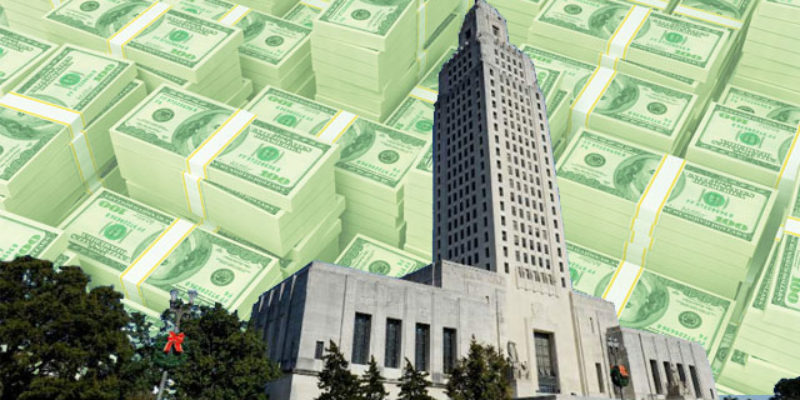Now that most Louisianans will get a tax cut, it’s time to cut them further and across the board, the data show if the state wants to minimize its outmigration.
Last month, voters passed a constitutional amendment that will cap income taxes and excise a deduction for federal income taxes paid, triggering legislation that reduces rates and total payments for most filers. It resulted in a small net tax decrease. Corporate rates also declined marginally.
But according to data crunched by the National Taxpayers Union, the higher the effective rate paid in state and local taxes, the greater net outmigration in raw numbers by taxpayers over the last two years for which there are data, 2018-19. And Louisiana keeps very bad company in the rankings, where in terms just of raw numbers outflows exceeded inflows by nearly 10,000, the tenth-worst among the states. The numbers are worse still when comparing the percentage change for all filers; here, its negative gap of 0.59 percent of all filers is fifth-worst.
The difference between the 2019 inflow and outflow adjusted gross income numbers, or about $485 million, represents income that fled the state in net. Applying the state’s effective state and local tax rate to it of 9.2 percent, that means state and local Louisiana governments lost out on $44.6 million in revenues.
Even more discouragingly, that rate lies significantly below that of the nine states with higher raw numbers, whose rates range from 10 to 14.1 percent, and the same among the bottom ten of the proportional net losers, except for the biggest one Alaska, which has an unusual economy but shares Louisiana’s overreliance on the energy sector. Marginal tax rates are but one of many factors that influence whether the productive citizenry locates in a state, but worrisome is that despite having only the 36th highest effective tax rate the state is a leader in income tax filer outmigration.
Advertisement
That net outmigration disproportionately occurred in the $10,000 to $74,999.99 brackets, naturally enough. Welfare makes it stickier for the lowest earners to leave (unless they can find a state with significantly more benefits relative to different costs of living that makes the disruption of moving worthwhile) or they are young part-timers still living at home, while the highest earners have a good thing going and would be less likely to leave that.
As for factors that would explain why at a lower rate Louisiana shows the same pathology as states with the highest rates, keep in mind that rate is for individuals and is kept lower by the nation’s highest homestead exemption, more than offsetting the nation’s highest sales tax rates. This produces a burden on businesses disproportionately larger which then ends up destroying jobs, forcing outmigration. Other anti-business legal restrictions, such as the decentralized sales tax regime potential reform of which voters narrowly defeated when they approved the fun-size tax cut, also contribute.
This means, absent other pro-business reforms, the need for tax cuts for Louisianans and their businesses takes on even more urgency given this other inertia working against economic development. The Legislature should give that mission priority in its next session where it may consider tax changes, if not acting sooner.
Advertisement
Advertisement

